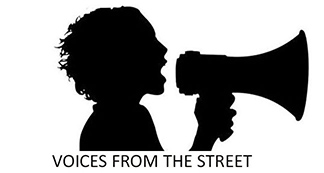Terry Collins, 52, shown near his home in the Annex, is a former crack addict who has been on and off welfare for the past 20 years and relies on food banks to make ends meet. (ANDREW FRANCIS WALLACE / TORONTO STAR)
Terry Collins kicked a crack cocaine addiction a decade ago and has been looking for steady work ever since.
But a criminal record from his years of drug abuse, lack of a driver’s licence and an outstanding student loan that prevents him from going back to college to update his skills are serious obstacles, said Collins, 52,
“I’ve been trying to better myself through various community training programs. But my past mistakes continue to hold me back,” he said.
The former GM assembly line worker who has cycled on and off welfare for about 20 years and uses food banks to make ends meet is bracing for the results of Social Services Minister Lisa MacLeod’s 100-day revamp of social assistance, expected Nov. 8.
Collins is among almost 70 per cent of Toronto food bank users who rely on social assistance and a growing number of adults over age 45 who visited a food bank over the past year, according to the Daily Bread Food Bank’s annual report being released Wednesday. People in this age group represent 37 per cent of food bank users — the largest demographic — up from just 28 per cent a decade ago, according to the report.
“I think they should try to increase social assistance for people,” said Collins, who lives on $570 a month after paying subsidized rent in a rooming house. “I just hope they don’t make it any worse than it already is.”
Although food bank use in Toronto is down by almost 5 per cent over 2016-17 to about 915,000 visits this year, it is still 14-per-cent higher than during the economic recession of 2008. And it is more than double food bank use in 1995, when Mike Harris’ Progressive Conservative government slashed welfare rates and introduced workfare, the report notes.
The analysis, being released a week before Doug Ford’s PC government is expected to unveil an overhaul of Ontario’s social assistance system, is “intentional,” said Daily Bread CEO Neil Hetherington.
“We are hopeful the minister has a chance to go through the report and look at what the full cost (of more cuts) would be,” he said in an interview.
MacLeod halved a planned 3-per-cent welfare rate increase to 1.5 per cent, killed the basic income pilot project and paused other Liberal reforms on July 31, while the Ford government embarked on a review of Ontario Works (OW) and the Ontario Disability Support Program (ODSP.) Together, the programs serve almost one million Ontarians and cost about $10 billion annually.

